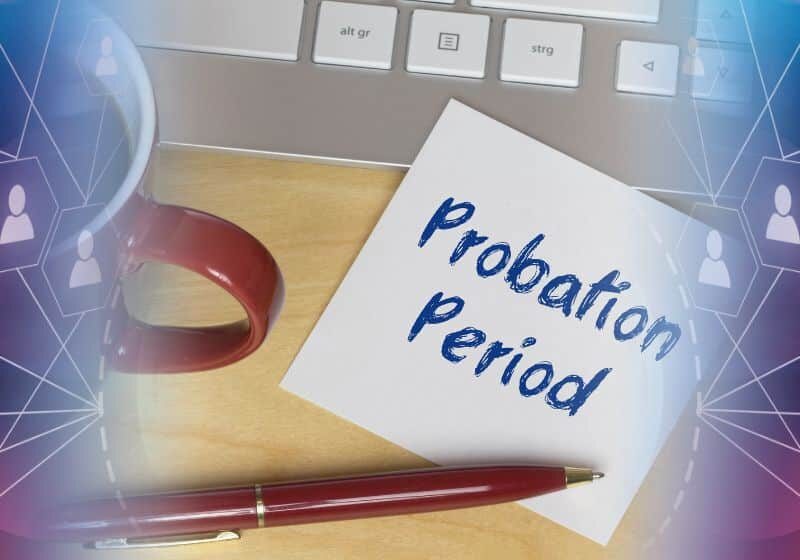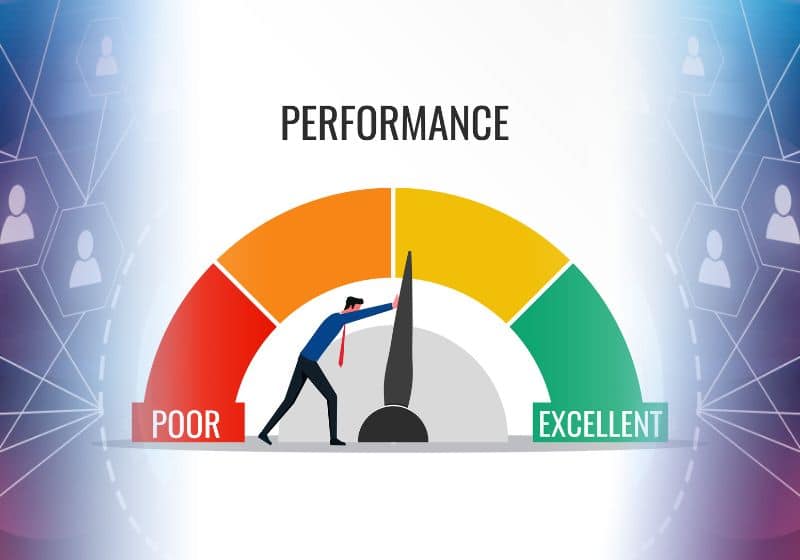Making the Most of Probation Periods

The probation period is a critical stage in the employment journey, offering a unique opportunity for both employers and employees to ensure a mutual fit before committing to a long-term relationship.
With the Labour government’s proposed changes to employment law, which would grant workers day one rights against unfair dismissal, the importance of getting the probation period right has never been greater.
Small businesses often face significant challenges in dedicating the time and resources needed to effectively manage probation periods. With limited bandwidth, many have historically overlooked or rushed through this critical phase, focusing more on immediate operational demands than on thorough employee evaluation. However, with the potential changes to employment laws looming this approach is no longer sustainable.
Small businesses must now make a concerted effort to monitor and support new recruits during their probation periods, ensuring that each hire is a good fit both technically and culturally. This shift will require a more structured and diligent approach.
From Recruitment to Probation: Ensuring a Seamless Transition for New Hires
After investing in a robust recruitment process to bring the right talent on board, the next crucial step is ensuring that your new recruit is set up for success.
This is where the probation period comes into play. It’s the bridge between hiring and long-term employment, offering a vital opportunity to confirm that the new employee is the right fit for your business.
So where to start?
Laying the Foundation: Clear Job Descriptions

A successful probation period begins before the new employee even starts.
The importance of a clear, detailed job description cannot be overstated. A well-crafted job description sets expectations for both parties, outlining the specific duties, responsibilities, and performance criteria that will be used to assess the employee during the probation period.
In light of the proposed changes, it is advisable to revisit and possibly revamp your job descriptions to ensure they are as clear and comprehensive as possible.
The job description should not only cover the technical competencies required but also outline the behavioural and cultural expectations of your business.
This clarity will serve as a critical reference point throughout the probationary period, ensuring that both parties have a mutual understanding of what success looks like.
Structured On-boarding and Induction Programmes
A structured on-boarding programme helps new hires integrate into the company, understand their role, and feel supported from day one. This is your opportunity to communicate the values, culture, and expectations of your business.
A comprehensive induction should include an introduction to the company’s history, mission, and values, as well as a detailed overview of the team structure and key policies.
This process should not be rushed. A well-executed induction can significantly reduce the time it takes for a new employee to become productive and engaged.
Training Plans: Building Competence and Confidence
A clear training plan is essential, especially in light of the potential for day one unfair dismissal rights.
Your training plan should be tailored to the specific needs of the employee, addressing any gaps in knowledge or skills that were identified during the recruitment process.
Providing the necessary training is only half the battle; you must also keep detailed records of all training provided. This documentation will be crucial if you ever need to justify a decision to end an employment relationship during or at the end of the probation period.
Records should include the content of the training, dates, and feedback on the employee’s progress.
Regular Reviews and Mentorship: Beyond Technical Competencies
It’s all too easy for managers to get caught up in the operational side of the business and forego review meetings.
Regular performance reviews are a key component of a successful probation period. These reviews should be scheduled at multiple points and should be used to assess both technical competencies and behavioural fit.
Given the Labour government’s proposals, it is essential to document these reviews carefully.
During these reviews, managers should provide constructive feedback and give the employee an opportunity to discuss any challenges they are facing. This two-way communication can help address issues before they become insurmountable and demonstrates a commitment to the employee’s success.
Mentorship also plays a vital role during the probation period. Assigning a mentor to a new employee can help them understand the company’s culture and expectations more effectively. A mentor can provide guidance, answer questions, and offer support, helping the new hire feel more connected and valued.
Cultural Fit: A Critical Component of Success
During the probation period, it’s important to assess whether the new hire aligns with your company’s values and culture.
This can be evaluated through observations of how they interact with colleagues, their approach to problem-solving, and their adaptability to the company’s way of working.
Ensuring cultural fit doesn’t mean hiring people who are just like everyone else, but rather finding individuals who can thrive in your unique environment while bringing their own strengths and perspectives to the table.
Addressing Issues During the Probation Period: Proactive Management for Success
The probation period is designed not just to assess an employee’s suitability but also to provide an opportunity for growth and adjustment.
It’s essential that managers address any issues or concerns as they arise rather than avoiding difficult conversations. By tackling these challenges early, you can prevent minor problems from escalating into significant issues that could ultimately impact the employee’s future with the company.
Don’t Ignore Concerns: The Importance of Early Intervention
One of the most common mistakes managers make during the probation period is hesitating to address concerns, often out of a desire to give the new employee more time to adjust or a reluctance to engage in potentially uncomfortable conversations. However, this approach can be counterproductive. Ignoring issues doesn’t make them go away; it often leads to misunderstandings, frustration, and missed opportunities for correction.
Managers should feel empowered to raise any concerns they have about a new employee’s performance or behaviour as soon as these concerns become apparent. Whether it’s a matter of missed deadlines, poor communication, or a failure to align with company culture, addressing these issues promptly ensures that the employee is aware of the expectations and has the opportunity to improve.
Taking Positive Steps for Improvement

When issues are identified, it’s important to take constructive steps to support the employee in making the necessary improvements. This involves clear communication about what the specific issues are, why they are a concern, and what the employee needs to do to address them.
Rather than vague statements like “You need to improve,” offer concrete examples of where the employee is falling short. For example, “I’ve noticed that your reports often contain errors in data accuracy, which is affecting our project timelines.”.
Outline what successful performance looks like and what changes need to be made. This might involve revisiting the job description or setting new, more specific goals for the employee to meet.
Improvement should not be left open-ended. Set a realistic, but firm, timeline for the employee to demonstrate improvement. For example, “Over the next 30 days, I’d like to see a reduction in errors and a consistent adherence to deadlines.”
Improvement is often more achievable when the employee feels supported. This might include additional training, even more regular check-ins, or assigning a mentor who can provide guidance.
Keep detailed records of all communications, feedback, and the steps taken to address issues. This not only ensures transparency but also provides a clear record in case the probation period does not lead to a successful outcome.
Regular Check-ins and Reviews
Managers should schedule regular check-ins with the employee throughout the probation period. These meetings provide a platform for ongoing feedback, allow the employee to raise any concerns they might have, and ensure that both parties are aligned in their expectations.
The goal is to ensure that both the employee and the company are satisfied with the working relationship, and that any issues are resolved quickly and effectively.
Extending the Probation Period: When More Time is Needed
Sometimes, despite the efforts of both the employer and the employee, the initial probation period may not be sufficient to determine if the employee is the right fit for the role. In such cases, extending the probation period can be a valuable option, providing additional time for the employee to demonstrate their abilities and for the employer to make a more informed decision. However, this decision should be approached with care and transparency to ensure it is fair and legally compliant.
Extending a probation period is often appropriate when the employee shows potential but hasn’t fully met the expectations required for the role. This could be due to several reasons, such as the need for more time to adjust to the company’s culture, external factors that may have impacted the employee’s performance, or delays in providing necessary training or opportunities for the employee to showcase their skills. In these situations, a probation extension allows for a more comprehensive evaluation, giving the employee a fair chance to succeed.
When deciding to extend it’s essential to communicate this decision clearly and well in advance of the probation’s original end date. The reasons for the extension should be explained to the employee, emphasising that it is an opportunity for further development rather than a negative reflection on their performance. This conversation should be followed by formal documentation that outlines the extension, including the new end date and the specific areas where improvement is needed.
During the extended probation period, it is crucial to set clear, achievable goals for the employee and to provide the necessary support to help them meet these objectives.
It’s also important to consider the legal implications of extending a probation period. Extending probation periods should be done for legitimate reasons and not as a means to circumvent new legislation; under potential government proposals, any extension must be reasonable, justified, and open to challenge by the employee if they are meeting expectations.
Employers must also ensure that the extension is properly documented and that the employee agrees to the new terms.
It goes without saying that the extension should be handled in a way that is fair and non-discriminatory, as failing to do so could lead to potential legal challenges.
The Outcome of the Probation Period: Navigating Next Steps
The conclusion of a probation period marks a significant moment for both the employee and the employer.
It’s a time to reflect on the journey so far and make an informed decision about the future. The outcome of the probation period generally falls into one of three categories: successful completion, the need for an extension, or termination of employment.
When an employee successfully completes their probation period, it’s a clear signal that they have met or exceeded the expectations set out at the beginning. This success should be formally acknowledged, typically through a meeting where the employee is informed that they are now a permanent member of the team.
This is also an ideal opportunity to discuss their future goals, potential career development, and any additional training or support they may need to continue thriving in their role. Providing positive reinforcement at this stage can boost the employee’s confidence and commitment to the company.
In cases where the employee has shown potential but hasn’t fully met the required standards, an extension of the probation period may be appropriate. This approach not only gives the employee a fair chance to succeed but also protects the employer by ensuring that every effort has been made to support the employee’s development.
However, if it becomes clear that the employee is not a good fit for the role despite the support and opportunities provided during the probation period, it may be necessary to terminate the employment relationship. While this is never an easy decision, it’s important to handle it with professionalism and respect. The termination process should involve a formal meeting where the reasons for the decision are clearly communicated, and the employee is provided with any entitlements or support as stipulated in their contract and by law. Proper documentation of the process and reasons for termination is crucial to mitigate any potential legal risks.
By carefully managing this process, employers can ensure that they make the best decisions for both the employee and the business, fostering a productive and positive workplace environment.
Conclusion: Preparing for the Future
The Labour government’s proposed changes to employment law highlight the need for small businesses to be more vigilant and proactive in managing probation periods. By laying a strong foundation with clear job descriptions, a structured on-boarding process, tailored training plans, and regular reviews, you can maximise the chances of a successful probation period and minimise the risks associated with early dismissals.
These steps not only protect your business but also demonstrate a commitment to fairness and development, which can enhance your reputation as an employer of choice. As the employment landscape continues to evolve, getting probation periods right will be more important than ever for building a resilient and thriving workforce.
By adopting these best practices, you can ensure that your business is well-prepared for whatever the future may hold, turning the probation period into a powerful tool for growth and success.
For a closer look at this topic, explore our additional content.
If you need help managing this process contact our advisors here who will be happy to help.
Angela Clay
A qualified employment law solicitor and our managing director, Angela has unparalleled legal expertise and decades of experience and knowledge to draw from. She’s a passionate speaker and writer that loves to keep employers updated with upcoming changes to legislation, and is a regular guest speaker on BBC Leicester Radio.




